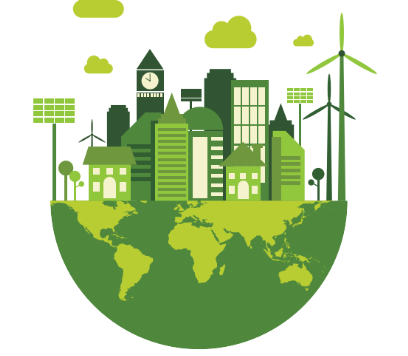How to Implement Sustainable Rental Practices

Sustainability is more than a temporary housing trend. It’s now an integral component of successful real estate businesses and an obligatory feature for tenants who care about their community and environment.
Many renters (especially Millennials and Gen Z renters) expect their rentals to use sustainable practices. Energy-eating appliances like incandescent light bulbs or electric stoves and ovens can be instant turn-offs for tenants invested in the environment.
To attract more renters and simultaneously care for your community, you should look to incorporate rental practices that support a sustainable future. As a bonus, you’ll also save money on energy costs and improve the health and wellness of your tenants.
Here are a few tips for implementing sustainable rental practices in your business.
- Prioritize Energy Efficiency
As mentioned, tenants will evaluate your stance on sustainability based on their immediate observations about your rentals. This includes appliances, utilities, and amenities. If these features aren’t energy-efficient, you’ll send the message that your rentals aren’t up-to-date and may even be harmful to the environment.
For example, gas-powered stoves and ovens use fossil fuels and contribute significantly to greenhouse gas emissions, including CO2. You can limit your carbon footprint and modernize your units by installing energy-efficient appliances and light fixtures.
Replacing old appliances might require an up-front investment, but they will eventually pay for themselves by decreasing utility costs. Your tenants will certainly appreciate the new models as well as the cheaper bills.
When you replace old appliances, make sure you fully recycle them rather than donating them. This will ensure the energy-inefficient models eventually disappear from circulation.
- Install Smart Home Technology
Smart home technology has improved by leaps and bounds in the past decade. In addition to automating many residential amenities like lighting and heat, smart home tech makes homes safer, more secure, and more energy efficient.
Smart home technology is also highly sustainable. New features allow users refined control of HVAC systems, appliances, and utilities. If you install smart home tech in your rentals, you or your tenants can closely monitor energy waste and control usage throughout the day.
Another bonus of smart home technology is that it can even be integrated with some online property management software platforms. For example, Appfolio integrates with SmartRent, a smart home automation company offering software and hardware for property owners looking to make sustainable upgrades.
- Choose Durable Materials
As natural disasters become frequent concerns in the 21st century, housing providers need to consider durability and resilience when designing and renovating rentals.
Durability includes using materials resistant to severe weather and climate. For example, you could install naturally fire-resistant roofing, use metal gutters, and use fire-safe material for siding, such as cement board or plaster.
Weatherproofing your rentals may also include using a fire-proof landscape design with open space and installing proper insulation for the climate so that your tenants aren’t paying exorbitant heating bills in the winter.
Being selective about the materials you use in your rentals can keep tenants safe in severe weather events as well as increase the longevity and sustainability of your units.
- Landscape Responsibly
Have you ever thought about how your lawn care or landscaping plans could impact the environment? If not, now is the time. Different fertilizers, water management models, and gardening practices can harm the environment and make yards less safe for tenants to enjoy.
There’s no need to have perfect-looking front lawns. In fact, cultivating the natural diversity and wildlife in your yards encourages low-maintenance plant growth to absorb water and reduce flooding. Fertilizers and pesticides can also have adverse effects on the natural wildlife or even humans. Avoid these chemicals and instead support the local wildlife in your area.
Lastly, consider water usage in your rentals. One way to conserve water is to install rainwater-capturing devices and encourage tenants to reuse that water in their gardens and lawns.
Help Achieve a Sustainable Rental Future
Research has shown that sustainable housing helps residents feel safer, happier, and healthier. Prioritizing sustainability in your rentals is more than a preventative measure. It also benefits the quality of living for your tenants right now. By modeling energy efficiency, installing smart home technology, using durable materials, and landscaping responsibly, you can achieve a sustainable rental future while also cultivating the best possible environment for your tenants to enjoy.
click here for more articles.


